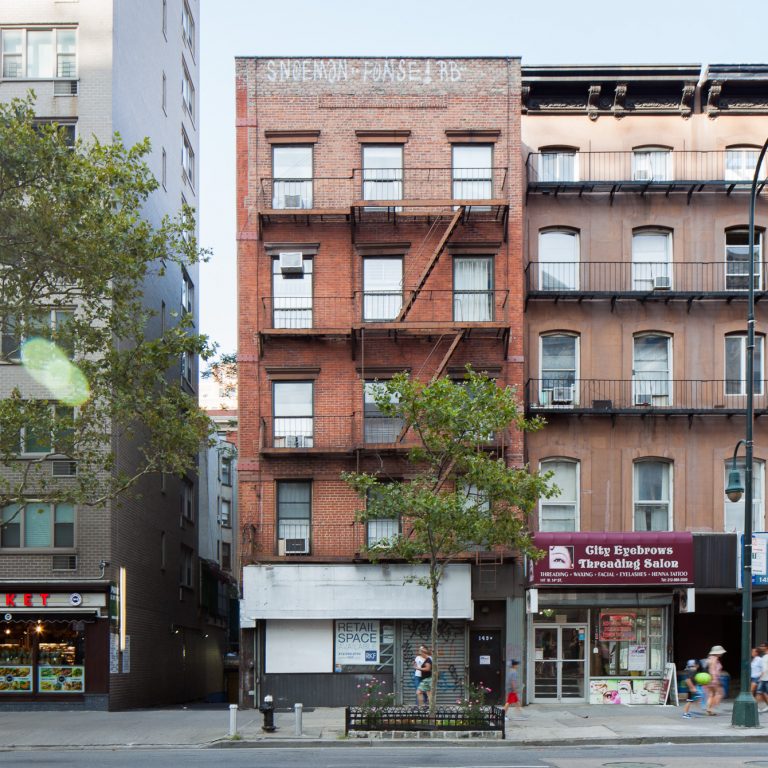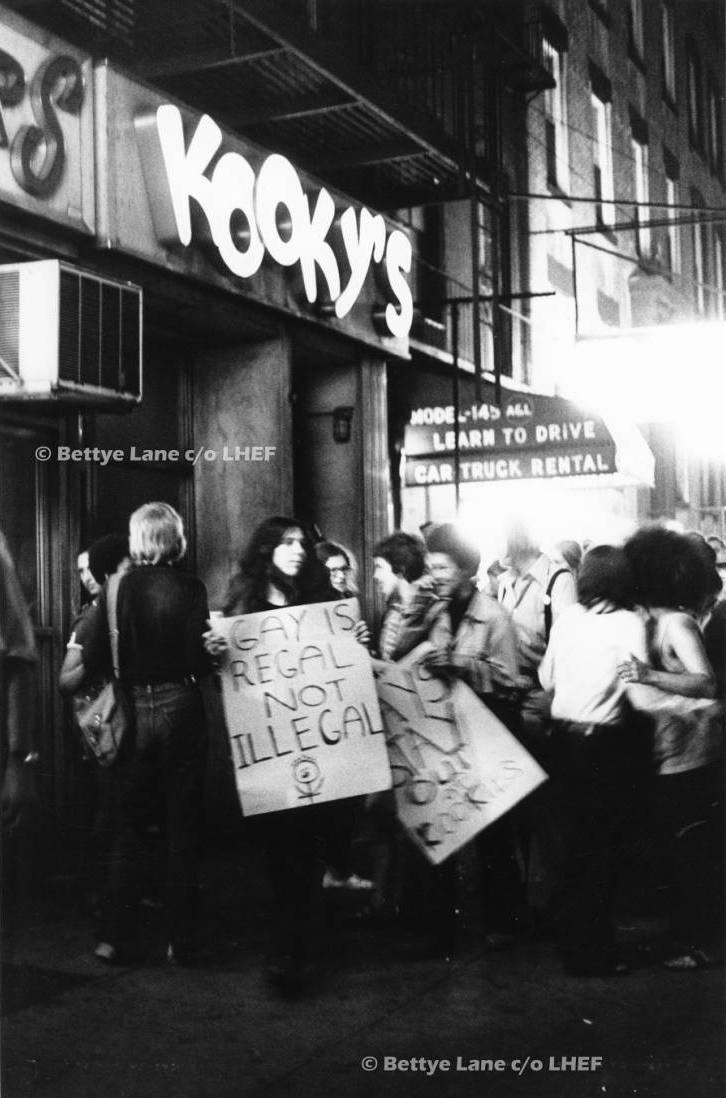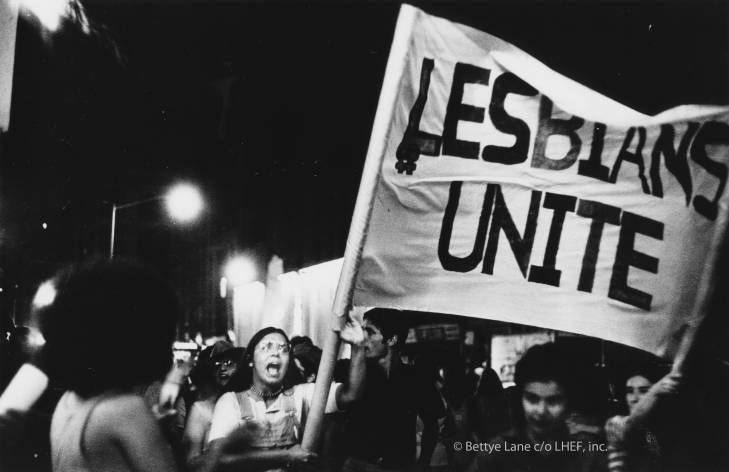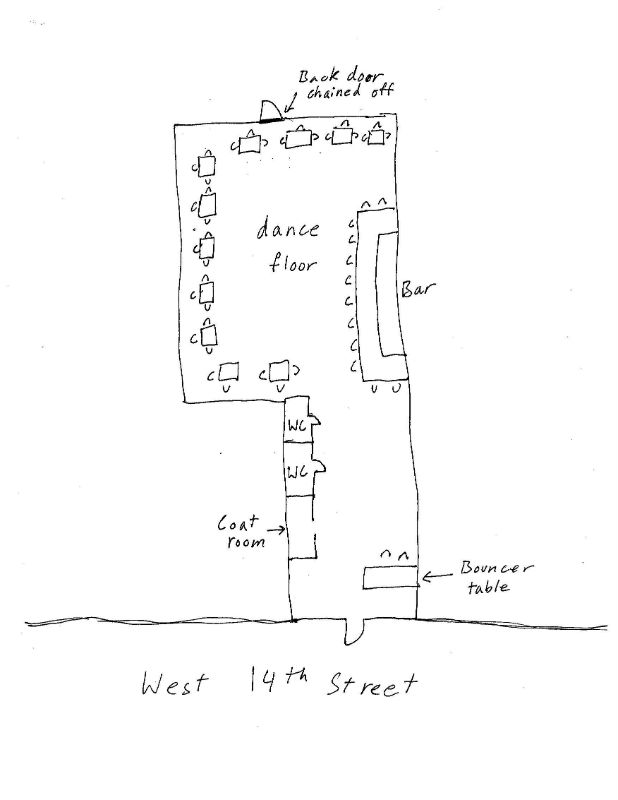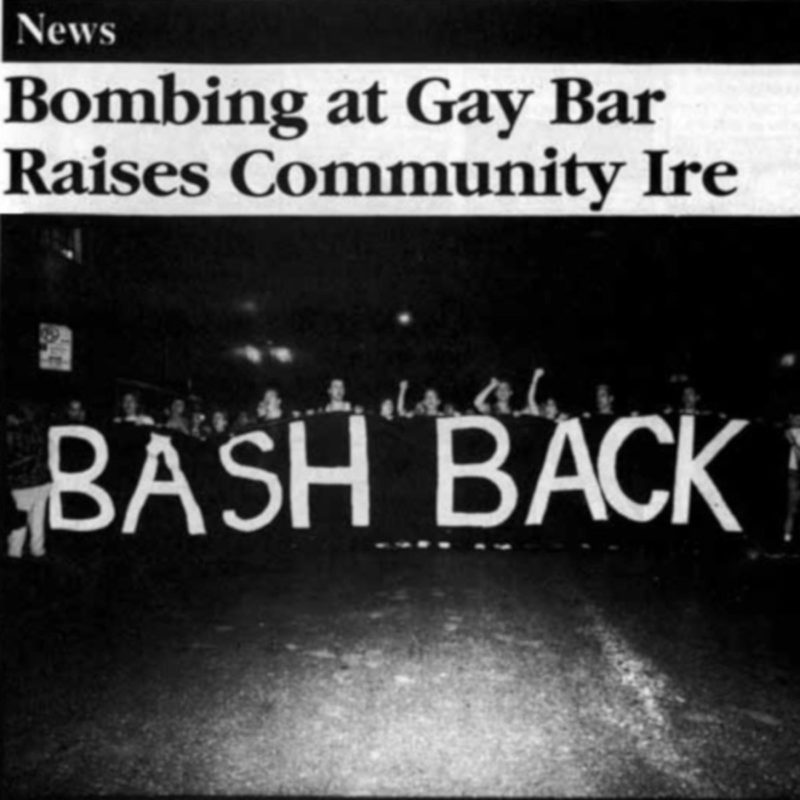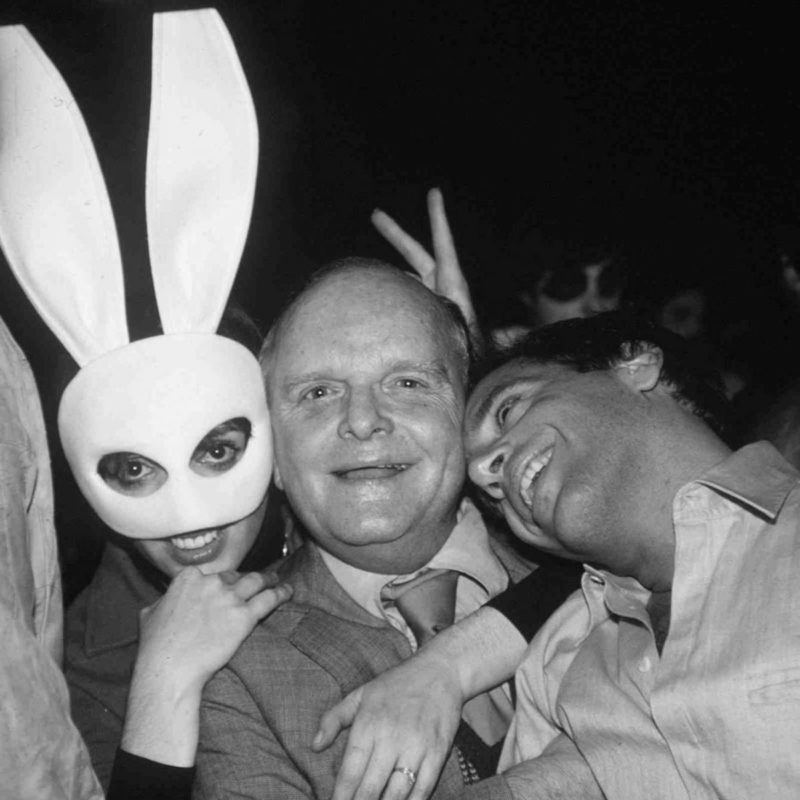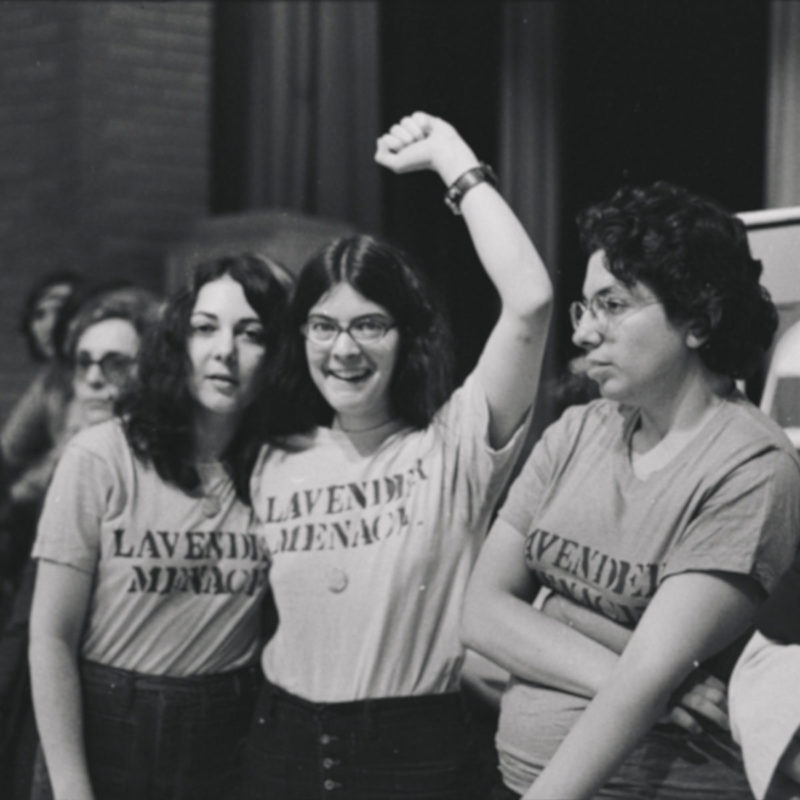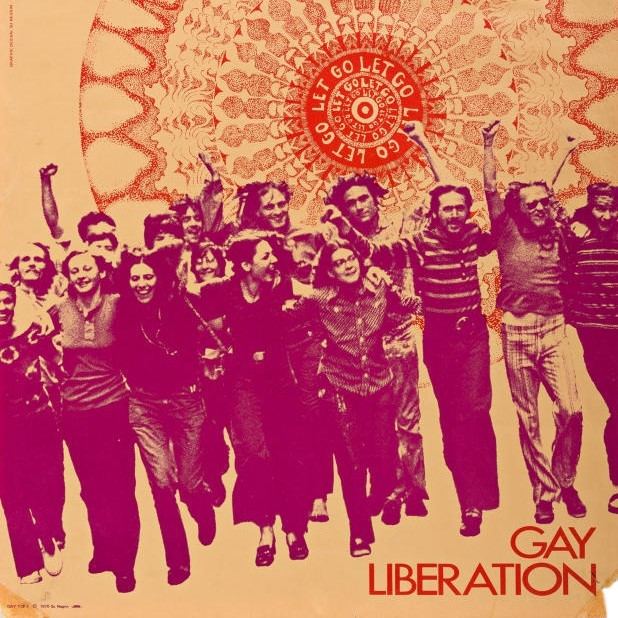overview
Kooky’s, also known as Kooky’s Cocktail Lounge, was a lesbian bar that operated from 1965 to 1973.
After the Stonewall uprising of June 1969, Kooky’s was the site of lesbian-led activism, which came at a time when lesbians no longer tolerated the oppressive practices found here and at other Mafia-run gay bars in Greenwich Village.
History
Kooky’s Cocktail Lounge, better known as Kooky’s (pronounced “cookies”), was a Mafia-run lesbian bar open from 1965 to 1973. Even though a female-operated bar at that time was unusual, Kooky (last name unknown) was not particularly welcoming to lesbian patrons. She enforced a door cover-charge policy ($3 – a large financial burden at that time) and had a lot of control over the imposing bouncers; rather than protect the patrons, which was supposedly their job, they would often bully them. Lesbian feminist author Karla Jay described Kooky’s memorable style: “Her hair was shellacked into a large golden beehive that suggested that she had last set, teased, and sprayed her hair in the 1950s and then left it permanently in place.”
Kathy Wakeham, a Gay Liberation Front (GLF) member, remembered that patrons would fill their glasses with water in the bathroom to avoid buying more overpriced drinks. A bouncer stationed at the front of the long bathroom line handed out small allotments of toilet paper and made sure patrons went in one by one. A small dance floor in the main space was surrounded by tables.
Kooky’s was the site of lesbian-led activism in the early years of gay liberation, which was spurred on by the Stonewall uprising of June 1969. The first action was in early 1970 when the women of GLF, led by Jay, decided to host the organization’s first women’s dance at their headquarters at Alternate U. GLF women were physically thrown out of Kooky’s for handing out dance flyers, which Kooky was worried would hurt her business. On April 3, 1970, the night of the dance, a group of large men came to Alternate U claiming to be police officers and started to bully some of the women. Jay and others suspected that they were in fact Kooky’s bouncers who had intended to intimidate them from having another dance.
Sometime after the GLF women’s dance, a drunk straight man punched a female patron (supposedly for dancing with a woman) and the management at Kooky’s did nothing about it. Martha Shelley, leading a GLF group of men and women, staged a “zap” at the bar in response. They refused to buy drinks and took up the whole dance floor, dancing in a circle holding hands. When one of the bouncers asked if she knew who he was, attempting to intimidate her, Shelley replied, “I don’t care who you are! We are the Gay Liberation Front!”
Around midnight of August 30-31, 1971, women from GLF, women and men from the Gay Activists Alliance, and the Daughters of Bilitis picketed in front of Kooky’s to protest its exploitative policies:
They accused Kooky’s of watering down and over-pricing their drinks, of insulting their customers, of refusing service to lesbians who work for gay liberation, of physically threatening customers, and of being a syndicate-operated bar.
This and other protests against Mafia-run bars marked an era of change. “Movement women” (those involved in activist groups) and bar patrons, some of whom could be categorized as both, knew that the less than ideal conditions of Mafia-run gay bars needed to be addressed.
Entry by Gwendolyn Stegall, project consultant (August 2018).
NOTE: Names above in bold indicate LGBT people.
Building Information
- Architect or Builder: Unknown
- Year Built: mid-19th century (with later additions)
Sources
Arthur Bell, “To Haven or Haven Not?,” The Village Voice, August 26, 1971. [source of pull quote]
Karla Jay, June 28, 2018, personal interview with Gwendolyn Stegall for the NYC LGBT Historic Sites Project.
Karla Jay, Tales of the Lavender Menace: A Memoir of Liberation (New York: Basic Books, 1999). [source of Karla Jay quote]
Kathy Wakeham, July 12, 2018, personal interview with Gwendolyn Stegall for the NYC LGBT Historic Sites Project.
Martha Shelley, July 9, 2019, personal interview with Gwendolyn Stegall for the NYC LGBT Historic Sites Project. [source of Martha Shelley quote]
New York City Directories (1965-1973).
Do you have more information about this site?
This project is enriched by your participation! Do you have your own images of this site? Or a story to share? Would you like to suggest a different historic site?
